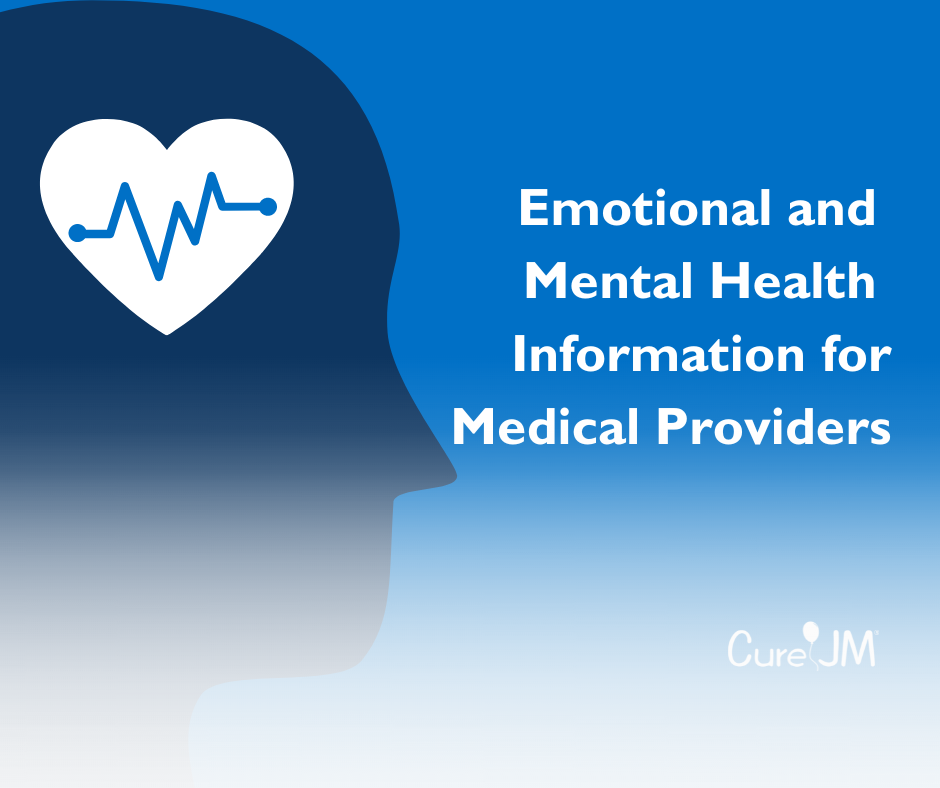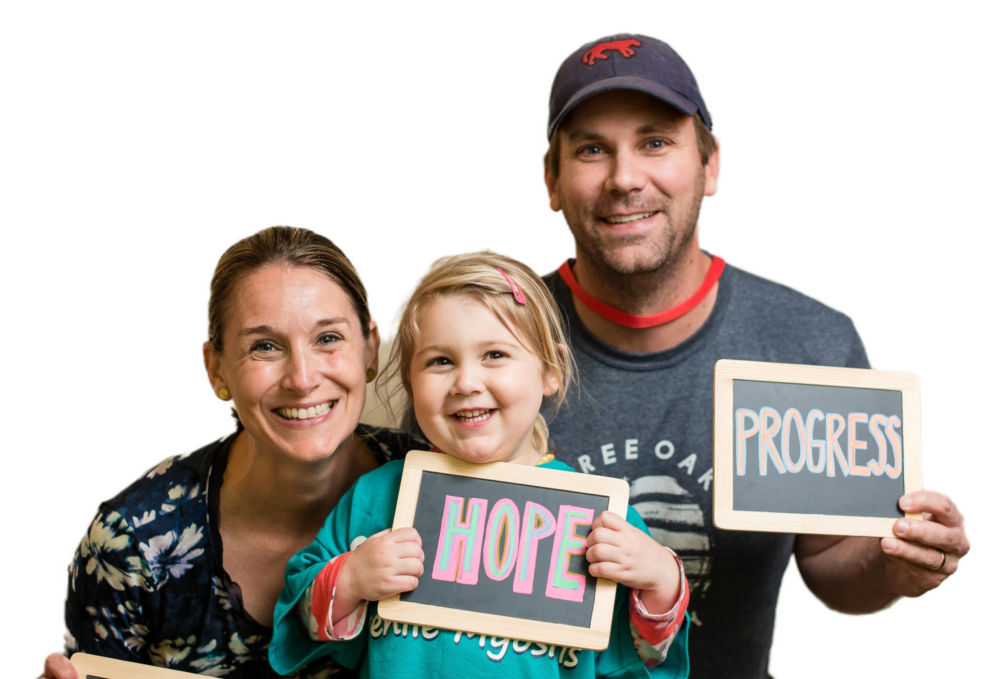Cure JM has prioritized emotional and mental health for families and medical providers. We recommend that mental health assessment and treatment options be integral to comprehensive care for children, adolescents, and adults with JM.
Suzanne Edison, Mental and Emotional Health Coordinator, will provide you with resources and information and assist pediatric rheumatologists in discussing and developing pathways for mental health screening and further evaluation or treatment when needed.
To understand how our JM families cope with mental health, we collaborated with Andrea Knight, MD, MSCE, an autoimmune and mental health expert. We surveyed Cure JM patients and parents on the “Mental Health Needs of JM Patients and Potential Interventions” and found that 28% of JM adolescent and young adult patients reported depression and 33% reported anxiety.
In addition, at our 2018 national family conference, focus groups on parent perspectives of our children’s mental health were conducted. The results of which were published in the Arthritis Care & Research Journal in January 2021. The conclusion states that “JM is associated with intense patient and family distress, although resiliency may emerge by young adulthood. Despite existing barriers, increasing access to counseling, peer support groups, and online resources with rheumatology facilitation may be effective intervention strategies.”1
1Parent Perspective on Addressing Emotional Health for Children & Young Adults with JM
Pediatricians
Having a chronic illness presents children and adolescents with greater emotional and mental health issues. Here are some valuable resources for having what might seem like difficult conversations about their mental/emotional health experiences and needs.
Achieving the Pediatric Mental Health Competencies
How to Feel Comfortable Starting Conversations About Emotional Health
Traumatic Stress in Ill or Injured Children: After the ABC’s Consider the DEF’s
Pediatric Mental Health Care Access Program
Mental Health Screening for Children & Teens
Parent Perspective on Addressing Emotional Health for Children & Young Adults with JM
Mental Health Panel Discussion @ 2019 Cure JM conference
Mental Health Care in Pediatric Rheumatology-guidance needed
Transformar la salud mental de los niños
Depresión y trastornos del estado de ánimo
Pediatric Rheumatologists
Having a chronic illness presents children and adolescents with greater emotional and mental health issues. You may feel uncomfortable having a conversation about your patient’s emotional and mental state for a variety of reasons, including discomfort or unfamiliarity with the topic, lack of time, or lack of referral resources. Here are some options for starting the conversation. Also, we’ll provide you with some help in creating pathways to assessment and treatment, if needed.
How to Feel Comfortable Starting Conversations About Emotional Health
Traumatic Stress in Ill or Injured Children: After the ABC’s Consider the DEF’s
Pediatric Mental Health Care Access Program
Mental Health Screening for Children & Teens
Parent Perspective on Addressing Emotional Health for Children & Young Adults with JM
Mental Health Panel Discussion @ 2019 Cure JM conference
Mental Health Care in Pediatric Rheumatology-guidance needed
Transformar la salud mental de los niños
Depresión y trastornos del estado de ánimo
Psychologists/MH Counselors
Mental health counselors and therapists know that a child affected by a chronic illness is likely to have a variety of emotional and mental health stresses, too. Both the illness and the treatments can be sources of distress and can heighten feelings of loss of control, confusion, sadness and anger. Children’s behaviors might change, and all of these emotions are normal, but children and families might need extra help to navigate the changes during these difficult times.
Pediatric Medical Traumatic Stress: A Comprehensive Guide
Pediatric Medical Traumatic Stress Toolkit: Your Guide to Using the Toolkit Effectively
Pediatric Mental Health Care Access Program
Mental Health Screening for Children & Teens
Mental Health Panel Discussion @ 2019 Cure JM conference
Mental Health Care in Pediatric Rheumatology-guidance needed
Transformar la salud mental de los niños
Depresión y trastornos del estado de ánimo

Associate Professor of Pediatrics | University of Colorado – Denver Attending Physician | Pediatric Rheumatology | Children’s Hospital Colorado Director | Pediatric Rheumatology Fellowship Program | University of Colorado – Denver
“Initially, some of the concerns I had about having conversations with my patients about their emotional health were that I might have no way to provide support, so I didn’t want to open a can of worms if I couldn’t help. Or, I would run out of time during the visit to address other things like treatment changes and ordering studies to monitor for disease activity/damage.
But, one thing I have learned in my 12 years of practice as a pediatric rheumatologist is that when I see patients in the clinic, it’s important for me to ask how they are doing from an emotional standpoint, and it’s alright for me not to have an immediate solution, but just to listen. Usually, the patient and family are glad I asked, and it doesn’t take much time during the visit. Simply showing I care about my patient’s mental health is the first step.”




